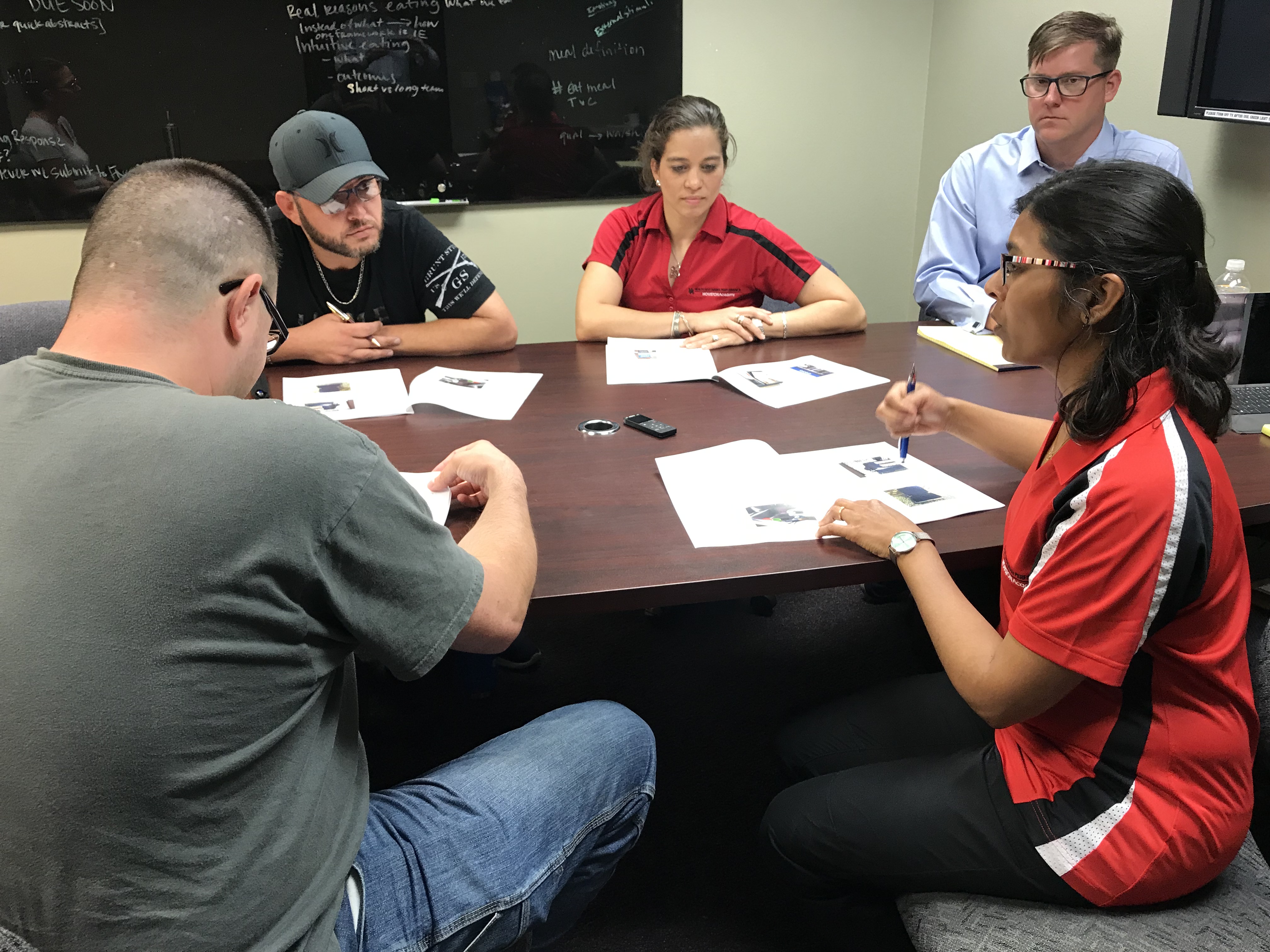HHP Research on Food Insecurity in Veterans Featured in the Media
A research project in the HHP department that aims to study food insecurity among veterans has been featured by UH News and Military.com. The project, funded by the William T. Grant Foundation, is led by HHP postdoctoral fellow Dr. Nipa Kamdar and mentored by HHP faculty Dr. Daphne Hernandez.

Dr. Kamdar and Dr. Hernandez with study participants (photo courtesy: UH News)
Veterans are twice as likely to lack regular access to sufficient quantities of affordable, nutritious food compared to the general U.S. population. Nearly one in four veterans is food insecure. For veterans who are also parents, this can have lasting effects on their children. This project hopes to determine the barriers that keep veterans from obtaining and eating quality food.
Military.com
Military.com featured the project in an article titled, "Study Aims to Show Why Some Veterans Go Hungry" on May 30th 2019. Below is a excerpt from the article:
"This is a problem in this community, but it's not being fully recognized," Kamdar
said during an interview with Military.com. "I really wanted to understand what was
happening in the veteran household and really get the story, rather than just the
numbers."
What struck her most, she said, was that the children of these families were rarely
affected by the food insecurity because the veterans simply went without eating themselves
to ensure that their kids were fed.
"They make do with what they have and make sure the kids get what they need. It is
just taken for granted that they would skip a meal, wouldn't eat or eat just once
a day," Kamdar said. "They consider this normal."
Read the entire article on Military.com
UH News
UH News featured Dr. Kamdar's research in an article titled, "Impact of Food Insecurity on Parent Veterans and their Children"
“Veterans may also have physical or mental health disabilities and limited social
support that further restrict their access to food,” said Kamdar. “There is limited
knowledge about the barriers to accessing food within the veteran community. By improving
access, we can reduce the negative social, academic, and health effects associated
with food security inequalities that children experience.”
“Meeting with these courageous veterans one-on-one and in group sessions really starts
a dialogue to find meaningful ways to address the issue of food insecurity. The photographs
help identify what’s really happening, when perhaps it wasn’t so clear in the beginning,”
said associate professor Daphne Hernandez, who is mentoring Kamdar on the project
and principal investigator of the grant funding the study.
Read the entire article on UH News